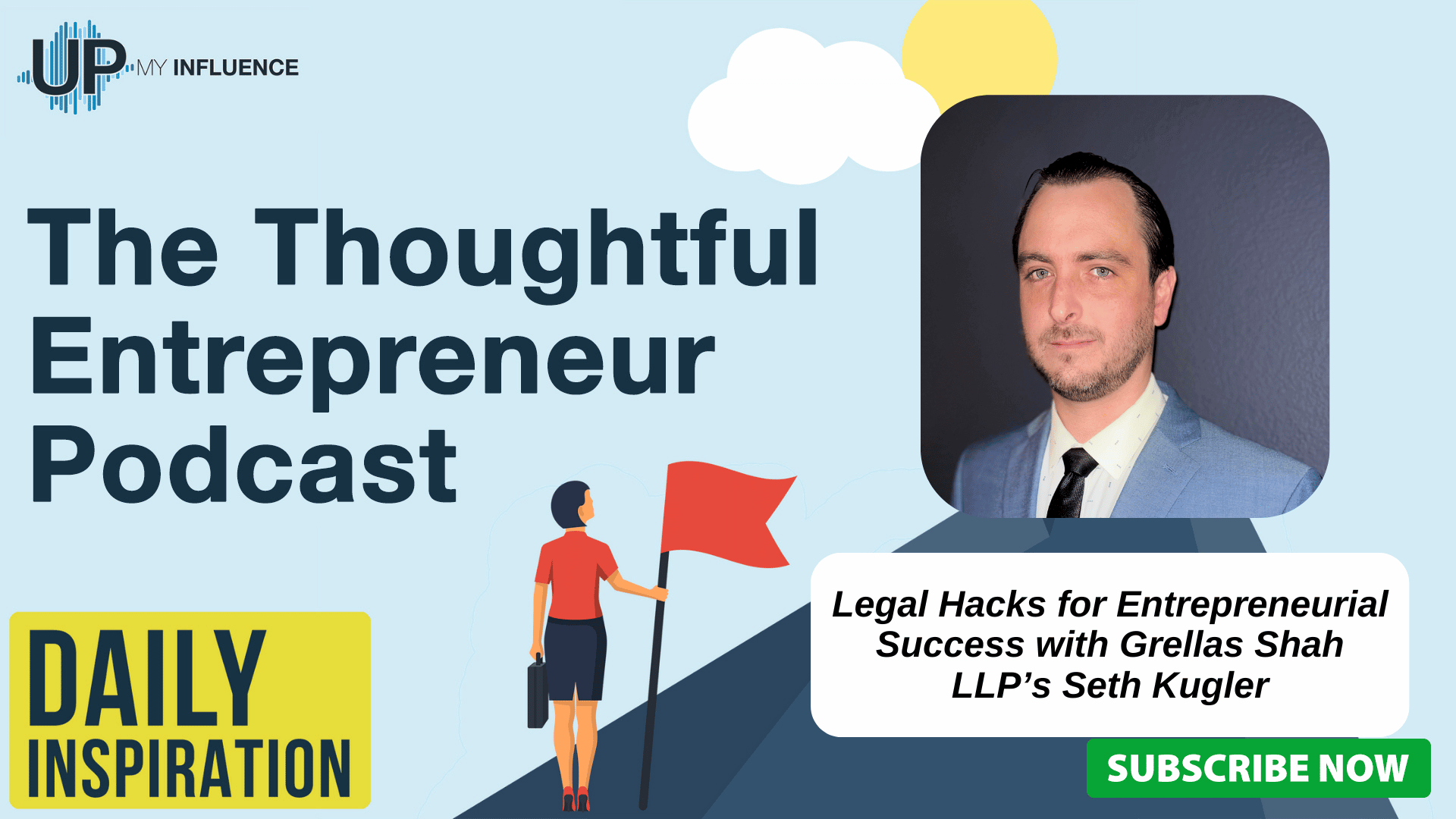THE THOUGHTFUL ENTREPRENEUR PODCAST
 Unveiling the Legal Landscape of Entrepreneurship
Unveiling the Legal Landscape of Entrepreneurship
In this episode of The Thoughtful Entrepreneur Show, host Josh Elledge speaks with Seth Kugler, a legal expert from the renowned law firm Grellas Shah LLP. They explore the intimidating legal challenges entrepreneurs face and offer guidance for navigating these complexities with confidence. Seth's experience provides listeners with a unique perspective on the legalities of starting and running a business.
Seth delves into the critical importance of protecting intellectual property, understanding contracts, and ensuring compliance with industry regulations. He shares strategies for safeguarding ideas and services, highlights what to look for in contracts, and discusses how to avoid common pitfalls. Seth also emphasizes the necessity of staying current with legal requirements to prevent costly penalties and ensure the longevity of a business.
The conversation with Seth Kugler leaves entrepreneurs with valuable lessons: prioritize IP protection, carefully negotiate contracts, and maintain compliance with laws. His insights demystify legal concepts and empower entrepreneurs to approach legal matters with greater assurance. The legal side of entrepreneurship, while complex, can be navigated successfully with the right guidance and resources.
About Seth Kugler:
Seth Kugler is an experienced business litigator in the tech space with focuses on corporate governance and fiduciary duties, unfair competition and the developing law surrounding the business of artificial intelligence.
About Grellas Shah LLP:
Grellas Shah is a founder-focused law firm, dedicated to providing legal services to emerging ventures and other early stage and middle-market businesses, as well as founders, entrepreneurs, executives, directors, officers, key employees, and others associated with such business clients.
Apply to be a Guest on The Thoughtful Entrepreneur: https://go.upmyinfluence.com/podcast-guest
Links Mentioned in this Episode:
Want to learn more? Check out Grellas Shah LLP website at https://grellas.com/
Check out Grellas Shah LLP on LinkedIn at https://www.linkedin.com/company/grellas-shah-llp
Check out Seth Kugler on LinkedIn at https://www.linkedin.com/in/seth-kugler-2218747
Don’t forget to subscribe to The Thoughtful Entrepreneur and thank you for listening. Tune in next time!
More from UpMyInfluence:
We are actively booking guests for our The Thoughtful Entrepreneur. Schedule HERE.
Are you a 6-figure consultant? I’ve got high-level intros for you. Learn more here.
What is your #1 Lead Generation BLOCKER? Take my free quiz here.
Want to learn more about all the podcasts managed by UpMyInfluence? Opt in here.

